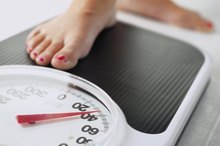Why Am I So Tired After Eating?
Food provides you with nutrients and vitamins that energize your body to get through your day. Unfortunately, some people find that they feel tired after eating a meal. This can be a sign of a medical condition or food allergy -- see your doctor if you experience fatigue after you eat.
Food Choices
Fatigue after eating could be due to the type of foods you eat. Your body has difficulty digesting processed foods, sweets, refined carbohydrates and high fat foods. When you eat, your body immediately breaks food down into smaller parts that are absorbed into your blood to energize and nourish your cells. Healthy food choices allow nutrients to be delivered effectively to re-fuel your body for proper function. Junk foods like chips, french fries and cookies do not have significant nutritional value. These foods tend to give you quick energy, but do not satisfy your hunger for very long, ultimately making you feel tired. Eating too much food at one sitting may also cause fatigue.
Food Allergies
What Happens to Sugar Levels in the Blood While Fasting?
Learn More
If you are eating properly and still feel tired after meals, you might be allergic to certain kinds of food. Celiac disease is a food allergy to gluten, which is found in many commonly-consumed foods such as wheat, barley and many condiments. Food allergies cause excessive bloating, gas, constipation or diarrhea, in addition to fatigue.
Eating Schedule
Many people skip breakfast -- said to be the most important meal of the day. Skipping breakfast or any other meal may cause you to feel weak and tired. This can lead to poor food choices, grabbing the quickest foods available when hunger strikes. These foods tend to be unhealthy foods.
Related Articles
References
Writer Bio
Ripa Ajmera has been writing for six years. She has written for ABCNews.com, General Nutrition Center (GNC), TCW Finance, Alliance for a New Humanity, Washington Square News and more. She was a Catherine B. Reynolds Scholar from 2006-2008 and graduated from New York University Stern School of Business with an Honors degree in Marketing.









